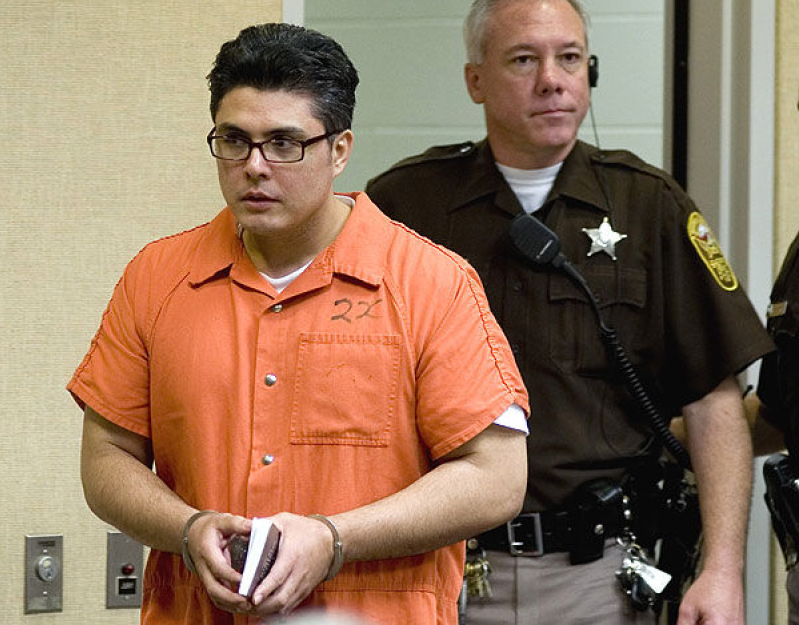
A Virginia man who has spent the past six years in a mental hospital after beheading his 5-year-old son is now being released.
Joseph Hagerman III was pronounced not-guilty three months following the charges upon the completion of two independent tests which conveyed his insanity. Both psychologists performing the evaluations confirmed his schizophrenia and pronounced a conditional release from Eastern State Hospital in Williamsburg, Virginia.
The pronounced conditions contingent upon his continued freedom include "...always being supervised (living at an adult foster home and with his parents on the weekends), continue to take his medications, attend therapy and have blood drawn monthly to make sure his drug levels are stable." In addition, a team will check up on Hagerman's activities twice daily throughout the week to ensure his medication consumption; his parents will do so on the weekends.
Hagerman himself confessed his reasoning for the 2009 slaying of his young son, Joshua: he was trying to save him from the Antichrist as well as ensure his passage to Heaven:
"If I didn't take my son's life, he would have lost his eternal salvation. I know it's a horrible thing."
Young Joshua's body was found in his home after neighbors heard what they described as a "stabbing cry." Hagerman, a night guard for Virginia Beach school system since 2001, was noted upon his attempt to escape the police. The killer's white T-shirt and sweatpants, the witness testified, were "covered in blood."
Maria Lancaster, Hagerman's sister, testified of her brother, expressing relief at his recent pardon:
"We are just happy that it is over with, and he has been given another chance...I just want to let the community know that my brother is a very loving, generous, Christian man. He had a wonderful family, and it was an unfortunate incident."
Hagerman's case is a gruesome one, undeniably, and opens the door to Christian discussion on mental illness. Do mental diseased exist to the extent psychology allowed them today and, if so, do they render man irresponsible for his actions?
A contributor to Christianity Today in an article entitled "A New Approach to Mental Health in the Church" sensibly put it this way:
"The fact is that mental illness and spiritual struggle can be (and are) related. We are not separate things, we are complex people—remarkable connected in spirit, soul, body, mind, etc."
There is no denying either mental illness or moral responsibility as man is a unified, not dichotomous, being. To deny the physical aspect would be to succumb to "spiritual abuse" as the author powerfully relates it, yet to deny responsibility is to deny God Himself, who declares that even the most childlike mentality is "known by his actions (Proverbs 20:11)."






